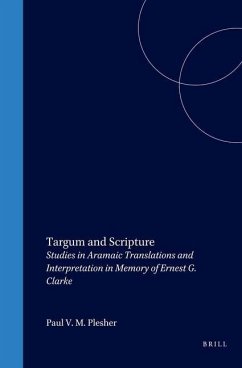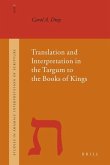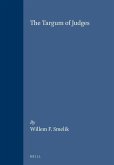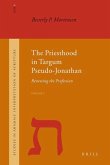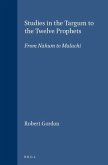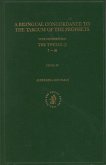If Greek was the language by which Palestinian Jews talked to the Empire, then Aramaic and Hebrew were the languages by which they talked to themselves. In this context, what resulted when they translated the Hebrew Bible into Aramaic? Moments of the inner Jewish conversation about the meaning and relevance of Hebrew Scriptures frozen in Aramaic renditions. The scholars in this volume use these Aramaic translations, known as the Targums, like dioramas, peering through them to glimpse these moments in the development of Judaism and its theology. Dedicated to Ernest G. Clarke, the essays explore the variety of interpretations preserved in the different Targums from the Second Temple and post-Temple periods during which they were composed.
Hinweis: Dieser Artikel kann nur an eine deutsche Lieferadresse ausgeliefert werden.
Hinweis: Dieser Artikel kann nur an eine deutsche Lieferadresse ausgeliefert werden.

